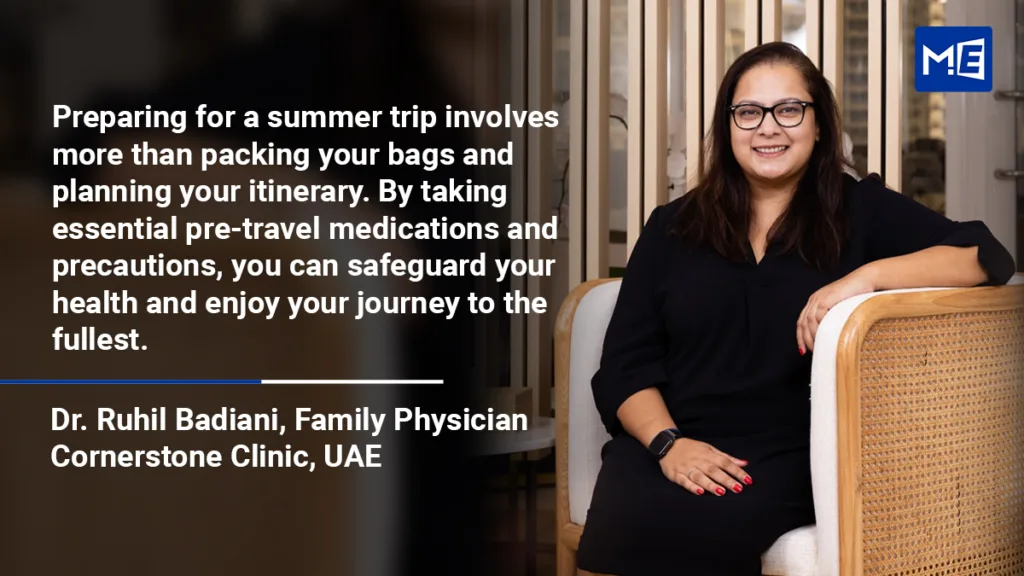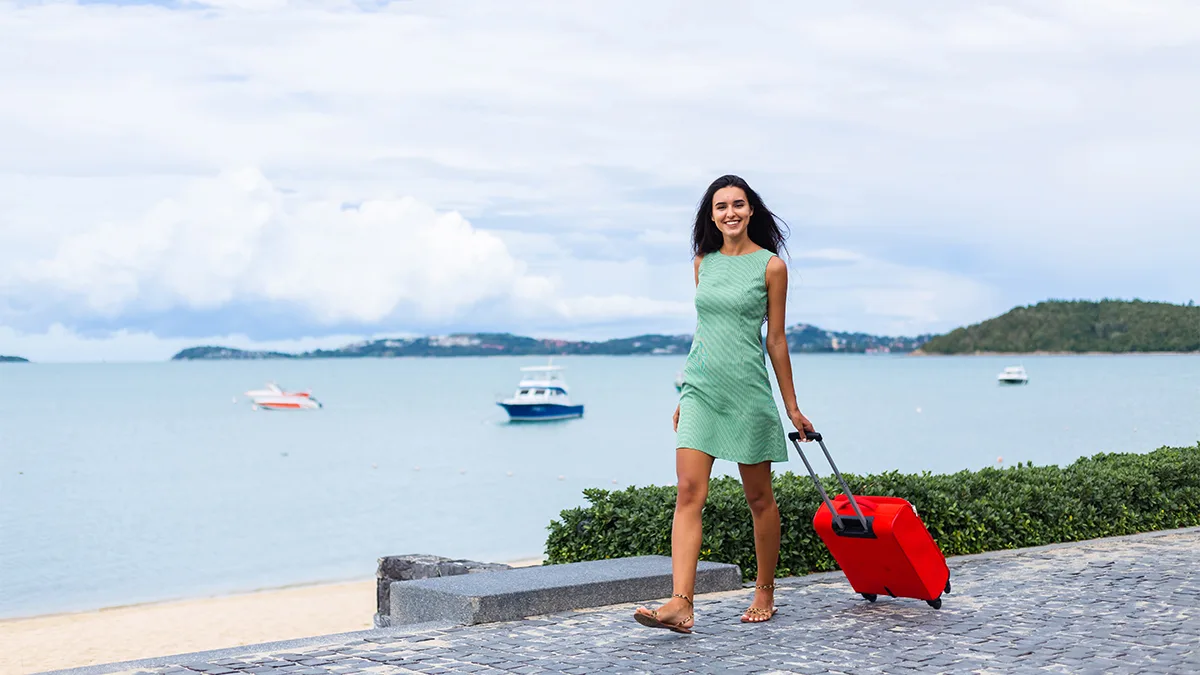Summer is the prime season for travel, with many seeking adventure, relaxation, and new experiences. However, the excitement of travel can sometimes be marred by health issues. To ensure a smooth and enjoyable trip, it is crucial to take certain medications and precautions before traveling.
Before setting off on your summer adventure, it’s wise to consult a travel health specialist. These professionals can provide personalized advice based on your destination, health status, and planned activities. They can recommend necessary vaccinations, preventive medications, and other health measures tailored to your travel itinerary.
Vaccinations and Immunizations
Depending on your destination, certain vaccinations may be required or recommended. Some common vaccines for travellers include:
- Hepatitis A and B: Recommended for many destinations, especially where sanitation and hygiene might be poor.
- Typhoid: Important for regions with questionable water and food hygiene.
- Yellow Fever: Required for travel to certain parts of Africa and South America. Proof of vaccination might be necessary for entry.
- Tetanus, Diphtheria, and Pertussis (Tdap): Essential to keep up to date for general health and travel.
- Rabies: For travellers planning extended stays in rural areas or working with animals.
Always check the Centers for Disease Control and Prevention (CDC) or World Health Organization (WHO) websites for up-to-date information on required vaccinations for your destination.
Medications for Travel-Related Illnesses
Travel often exposes you to different climates, food, and environments that can cause various illnesses. Being prepared with appropriate medications can prevent these issues:
- Antimalarials: If you’re traveling to a malaria-prone area, antimalarial medications are essential. Consult your doctor for the right prescription based on the destination and individual health conditions.
- Antidiarrheals: Traveler’s diarrhea is common, especially in regions with differing sanitary standards. Medications like loperamide (Imodium) and bismuth subsalicylate (Pepto-Bismol) can help manage symptoms.
- Motion Sickness Medications: If you are prone to motion sickness speak to your doctor to advise you on the best medication for you. Natural remedies like ginger tablets can also be effective.
- Altitude Sickness: For high-altitude destinations, acetazolamide (Diamox) can help prevent altitude sickness.

First Aid Kit Essentials
A well-stocked first aid kit is a travel necessity. It should include:
- Pain Relievers: Such as acetaminophen or ibuprofen for headaches, muscle pain, or fever.
- Band-Aids and Dressings: For minor cuts and wounds.
- Antiseptic Wipes and cream: To clean wounds and prevent infection.
- Tweezers and Scissors: For removing splinters or cutting bandages.
- Hydrocortisone Cream: For insect bites or allergic reactions.
- Thermometer: To monitor fever.
- Electrolyte Tablets or Powders: To prevent dehydration, especially in hot climates.
Personal Prescriptions and Documentation
If you take regular medications, ensure you have an adequate supply for the duration of your trip, plus a few extra days in case of delays. It’s wise to carry a copy of your prescriptions and a letter from your doctor explaining your medical needs, especially for controlled substances. It is always wise to check on the destination country’s website if they have specific requirements for all your medications, what may be available over the counter in your country may be illegal in your destination country. Keep medications in their original containers and pack them in your carry-on luggage to avoid loss or delays if your checked baggage goes missing.
Surviving Summer: Tips for Moms-to-Be
If you require injectables, for example, insulin, and need to carry it in your luggage, check with your airline what their rules and regulations are but a letter from your doctor is essential.
Travel Insurance
Travel insurance is an essential precaution that can cover medical emergencies, trip cancellations, and lost luggage. Ensure your policy includes coverage for medical expenses, emergency evacuations, and any activities you plan to participate in, such as scuba diving or hiking. Some credit cards offer travel insurance benefits, so check if you’re already covered before purchasing additional insurance.
Hydration and Sun Protection
Staying hydrated and protecting yourself from the sun are critical during summer travel:
- Hydration: Carry a reusable water bottle and drink plenty of fluids, especially in hot climates. Be cautious of local water quality; in some destinations, it’s safer to drink bottled or purified water.
- Sun Protection: Use broad-spectrum sunscreen with at least SPF 30, and reapply regularly, especially after swimming or sweating. Wear protective clothing, hats, and sunglasses to shield yourself from harmful UV rays.
Food and Water Safety
Food and water safety are paramount to prevent gastrointestinal illnesses:
- Eat Cooked Food: Avoid raw or undercooked meats, seafood, and eggs. Opt for hot, freshly cooked meals.
- Safe Water: Drink bottled or purified water. Avoid ice in drinks unless you’re sure it’s made from safe water.
- Fruits and Vegetables: Eat fruits and vegetables that can be peeled or are cooked. Avoid salads and raw produce unless you’re certain of their safety.
Insect Bite Prevention
Insects can carry diseases such as malaria, dengue, and Zika. To protect yourself:
- Insect Repellent: Use repellents containing DEET, picaridin, or oil of lemon eucalyptus.
- Protective Clothing: Wear long sleeves and pants, especially during dawn and dusk when mosquitoes are most active.
- Mosquito Nets: Use mosquito nets treated with insecticide if you’re staying in areas with a high risk of mosquito-borne diseases.
Jet Lag Management
Traveling across time zones can disrupt your circadian rhythm, leading to jet lag. To minimize its effects:
- Adjust Sleep Schedule: Gradually shift your sleep schedule a few days before departure to align with your destination’s time zone.
- Stay Hydrated: Dehydration can exacerbate jet lag, so drink plenty of water.
- Natural Light: Exposure to natural light can help reset your internal clock. Spend time outdoors during the day at your destination.
Preparing for a summer trip involves more than packing your bags and planning your itinerary. By taking essential pre-travel medications and precautions, you can safeguard your health and enjoy your journey to the fullest. From consulting a travel health specialist and getting necessary vaccinations to packing a comprehensive first aid kit and staying informed about local health risks, these tips will help ensure a safe and memorable travel experience. Remember, a well-prepared traveler is a happy traveler.



















